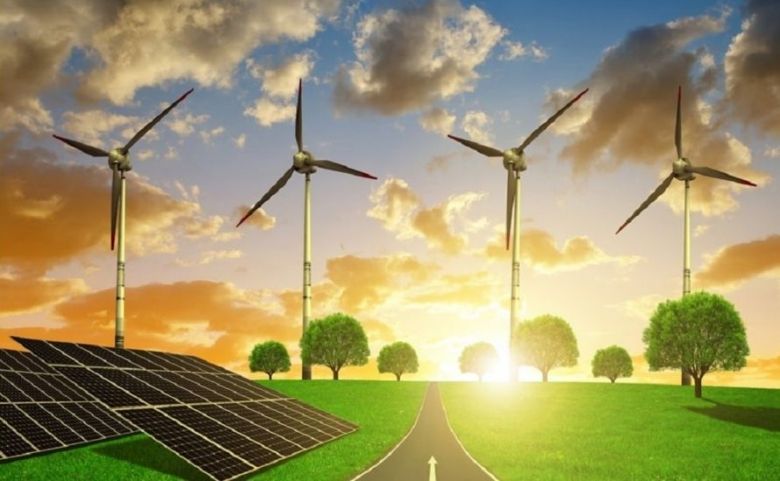Azerbaijan embarks on Decarbonization Journey

Figuratively speaking, due to its own fault, nowadays humankind lives on thin ice that is constantly threatened by climate disasters. The ice on which we stand is being cracked by the phenomenon known as climate change, which is caused by carbon dioxide. Glaciers and ice sheets melt and shrink as a result of these processes, which also alter the flora and fauna, cause weather instability, and disrupt seasonal patterns. According to scientists, global climate change is the root cause of these concerning phenomena around the world. Due to the development of agriculture and the increasing population, experts predict that these effects will be more actual in the near future. The whole world will suffer from climate change which stems from human activities. Of course, together with other countries Azerbaijan will face difficulties as well.
The country manager of the World Bank for Azerbaijan Stephanie Stallmeister, noted that Azerbaijan is one of the countries that can be directly affected by decarbonization on a global scale. She noted that Azerbaijan will face both water scarcity and extreme hot weather in the coming years. This will especially affect agriculture.
The report released by the U.N. Intergovernmental Panel on Climate Change (IPCC) found that the average annual temperature in the territory of Azerbaijan has increased by 0.4-1.3 degrees in the last 100 years. Azerbaijan will be among the nations with the most severe water shortages by 2040, and water supply will drop by 23% by that year due to a climate-related drought. As things stand, Azerbaijan is feeling the full force of climate change, with the most obvious effects being a scarcity of water due to the drought of mountain rivers and a decrease in Kura’s water. As a drought Kura, the biggest river in Azerbaijan, has not been able to reach the Caspian Sea for two years. The current situation in Kura, which is known for its "madness" and produced the worst flood in Azerbaijan in 2010, exemplifies the negative effects of carbon dioxide gases.
Despite Azerbaijan's 0.11% contribution of global greenhouse gas emissions, the country started to actively participate in decarbonization initiatives to address the urgent problems listed above. Azerbaijan has committed to reducing its greenhouse gas emissions by 30% from 1990 levels by 2030 and by 40% by 2050, as part of the Paris Climate Agreement.
In order to ensure the private sector's participation in this field and to enhance the share of installed electricity generation from renewable energy sources, Azerbaijan formed the Renewable Energy Agency as part of its sector transformation strategy.
The agency's primary plan calls for the construction of the hydroelectric plants “Khudafarin” and “GizGalasi.” The completion of the 80 MW “GızGalasi” and 200 MW “Khudafarin” hydropower plants is expected to be within the next two to three years.
In line with the adaptation's “green energy space” sub-goal, energy efficiency and the usage of electric vehicles will be prioritized concurrently. According to data made public by the State Customs Committee, there were 476 more imported cars with exclusively electric motors during the same period last year, or 6.2 times as many as there were during the previous year.
Besides local actions Azerbaijan also cooperated with other international companies and organizations.
In October 2023, Azerbaijan filed their updated NDC. The European Union (EU) provided funding for the NDC revision through the EU4Climate program. EU4Climate, an EU-funded program run by UNDP, helps six Eastern Partnership nations better their climate laws and policies while also assisting in implementing the Paris Agreement. EU4Climate is also offering assistance in Azerbaijan with the NDC Finance Strategy and Investment Plan preparation. The sectors selected for mitigation strategies in the amended NDC are waste management, forestry, land use change, energy, industrial processes and product consumption, and agriculture. The nation will continue to develop and carry out suitable adaptation measures for especially sensitive sectors like agriculture, as the updated NDC affirms.
With “ACWA Power” of the Kingdom of Saudi Arabia and “Masdar” of the United Arab Emirates, pilot projects pertaining to the construction of 240 MW wind power plants and 230 MW solar power plants, respectively, have been initiated. With the companies in this direction, “investment agreements,” “energy purchase and sale agreements,” and “transmission network connection agreements” were signed. An estimated $500 million in foreign investment will be invested to build these 470 megawatt reactors. Beyond that, an Executive Agreement was signed with the BP firm regarding the assessment and execution of the 240 MW solar power plant construction project in the Zangilan/Jabrayil area.
The Asian Development Bank is supporting the implementation of the project “Knowledge exchange and Technical Assistance Support for the Development of floating solar panels” concurrently. As part of this project, a 100 kW pilot floating solar system will be installed on Lake Boyukshor, a first for Azerbaijan.
To prepare the “Green Energy Zone” Concept and Master Plan in the areas liberated from occupation, an agreement was made with TEPSCO, a Japanese business that specializes in this field. Work is now being carried in this direction.
Although Azerbaijan's efforts help both the local and global environment, the issue is far more global and requires international cooperation. For a long time now, a number of international events, including scientific and practical conferences, have been held related to this global problem, and various proposals have been put forward to eliminate the consequences and prevent projected expectations. If not taken action, based on given data climate disasters will become so extreme that people will not be able to adapt. Basic components of the Earth system will be fundamentally, irrevocably altered. Heat waves, famines, and infectious diseases could claim millions of additional lives by century’s end.
---
Follow us on Twitter @AzerNewsAz
Here we are to serve you with news right now. It does not cost much, but worth your attention.
Choose to support open, independent, quality journalism and subscribe on a monthly basis.
By subscribing to our online newspaper, you can have full digital access to all news, analysis, and much more.
You can also follow AzerNEWS on Twitter @AzerNewsAz or Facebook @AzerNewsNewspaper
Thank you!

